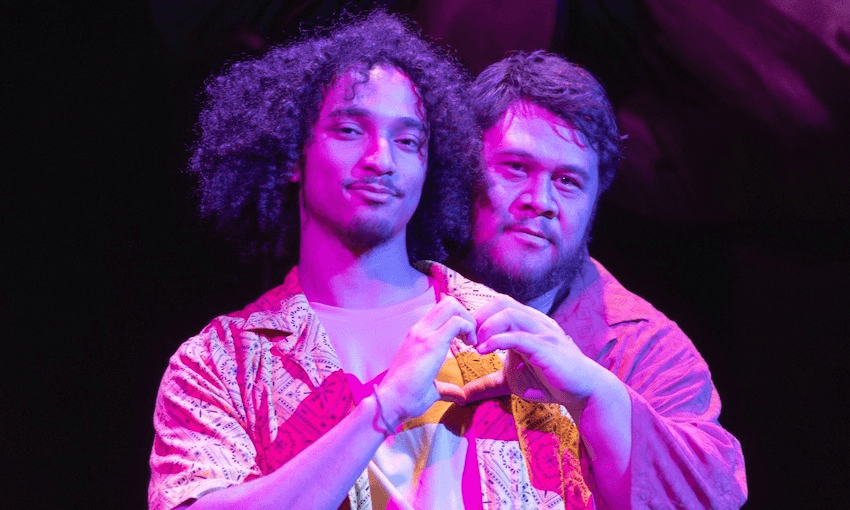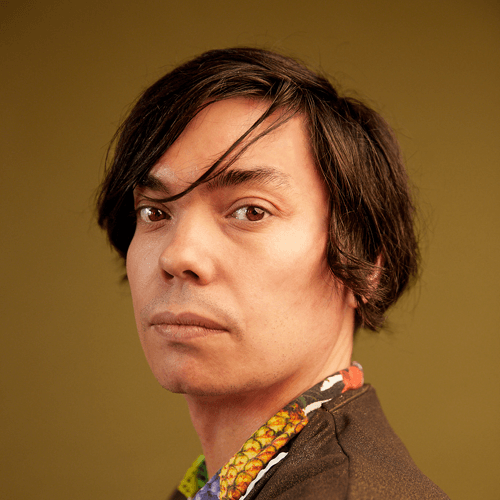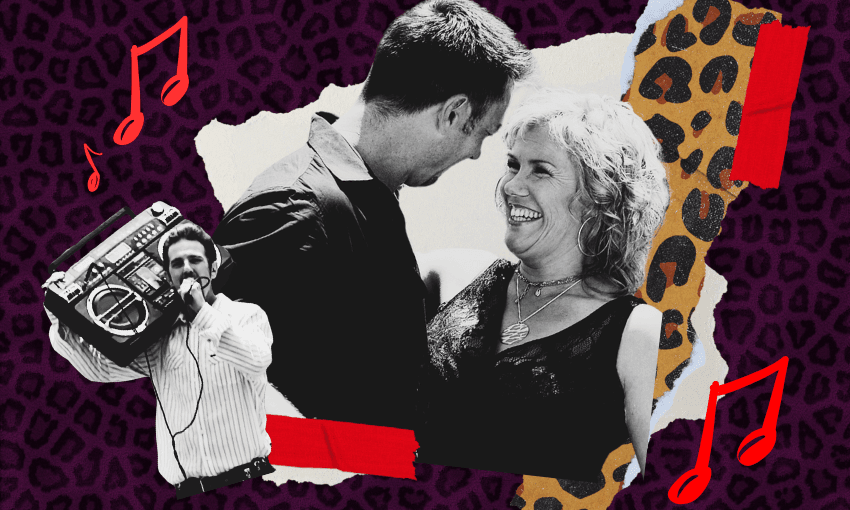Sam Brooks reviews the revival of Victor Rodger’s seminal play.
I remember seeing Victor Rodger’s Black Faggot over a decade ago at the Basement Theatre studio. The show had a simple concept – the queer experience told through a Samoan lens, with two actors playing multiple characters, loosely linked by having some relationship to queerness, be they queer people themselves, or simply being in a room with another queer person.
It was a hit. The show sold out that initial run in the 65-seat theatre, and toured around the country for over two years with multiple actors switching in and out of the roles, including Beulah Koale, Iaheto Ah Hi, Shimpal Lelisi, Taofia Pelesasa and Fasitua Amosa. It resonated with audiences not just because of the performances and Rodger’s trademark sense of humour – absolutely that of a gay man raised on sitcoms and classic Hollywood, but provocatively cheeky – but because it was the first time that most of its audience had ever seen this particular experience onstage.
New Zealand is a country that is notoriously bad at reviving plays, even successful ones. Whether it’s due to a lack of spaces, funding, or audiences is anybody’s guess – it’s probably an awful mix of all three. Too often plays get initial runs before all that remains are hazy memories, with the occasional drama nerd pulling a scene or monologue out for an audition or NCEA exam.
That’s why it’s a treat to see any work, really, but especially a work like this, revived. While Black Faggot went around the country for quite a long time – if you didn’t see it and wanted to, it’s absolutely on you – theatre audiences are different 10 years on. We’re in a renaissance of Pasifika theatre, heralded in part by Rodger’s championing of other playwrights and poets himself, and Black Faggot is absolutely part of that legacy that deserves to be seen, even re-examined, to quantify that renaissance. Ten years ago, Rodger was one of New Zealand’s leading playwrights. Now, he’s still that, but he’s got an ONZM and is an Arts Laureate to boot. (Director Anapela Polaitavao also, not coincidentally, also has an ONZM and is an Arts Laureate.)
The current production sees actors Jake Tupu (Auckland Theatre Company’s production of Dawn Raids) and newcomer Gideon Smith take on the kaleidoscope of roles that Rodger has gifted them with. And they really are gifts for the actors; Rodger gives them sharp dialogue and sharper punchlines, and characters across the age, gender and sexuality spectrum. In one moment they can be playing a gay couple arguing about “mess” on a wall, and in the next, a parent questioning why their son has a poster of Sonny Bill Williams on his roof. Tupu is particularly excellent in inhabiting his roles, although if there’s one thing that this production highlights, it’s that one actor, Smith in this instance, is often playing set-up to the other actor’s spike. It unbalances the production slightly, but never enough to truly detract from the experience.
Polataivao lends the production the sort of elegance and grace that an audience has come to expect from her previous work, including Wild Dogs Under My Skirt and The Savage Coloniser Show. The staging is simple and unobtrusive – a stained glass square for the actors to perform in, a large hibiscus flower blooming towards the back of the stage. There are no bells and whistles to the show, and there needn’t be. This is ultimately a show that is about characters simply living their lives, queer or otherwise, and frankly, many of those characters are theatrical enough to not need any outside support.
A show like Black Faggot shouldn’t still be as relevant. Like its spiritual predecessor, Toa Fraser’s Bare, it should feel like it captures a moment in time, like lightning in a bottle. But whereas Bare has aged into an absolutely lovely, non-controversial picture of urban New Zealand in the 90s, Black Faggot feels as though it could have been written yesterday (with some jokes ageing like cheap wine, as jokes unfortunately tend to do).
The characters and conversations that Rodger is putting in front of us still feel startling, even new. Broadly speaking, queer people still face prejudice and in 2025, there are parts of society that feel even less safe, less open to these kinds of conversation than we were back in 2013. The pockets of society that would been shocked by the lives on display in Black Faggot back then are still likely to be shocked, and are likely even more entrenched in the worldview that allows them to be so. At least on opening night, the unobtrusive but still noticeable presence of a security guard outside Q Theatre was a reminder that the subject matter that Rodger is exploring has become even more polarised amongst a vocal, active, minority. A decade ago, no such security was necessary.
There is a glimmer of light within that relevance, however – and it’s the thing that was strongest about Black Faggot all those years ago. It’s that it isn’t a big show. It isn’t a show where characters move mountains, metaphorically or otherwise. It isn’t a show with heroes and villains. All the characters portrayed onstage, whether they’re a young kid pleading with God, a couple fighting about an unfortunate mess on the wallpaper, or a mother wrestling with her kid’s sexuality, are just people living their lives. As queer people have always done, and despite some shitty people who think otherwise, will continue to do. That reminder will never not be relevant, and will always be welcome.
Black Faggot plays at Q Theatre until June 29.








